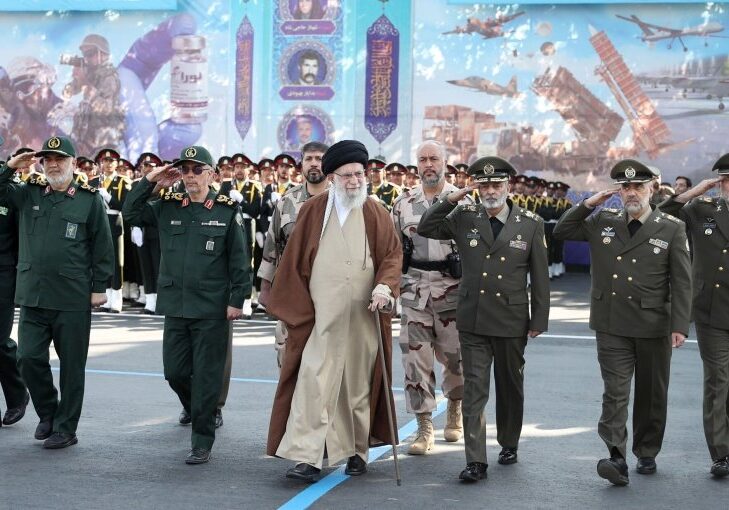Australia/Israel Review
Editorial: End of an Era
Feb 1, 2006 | Colin Rubenstein
Colin Rubenstein
A new era has befallen Israel with the tragic end of the premiership of Ariel Sharon and the electoral victory of Hamas, which is openly wedded to Israel’s destruction, in the Palestinian Authority.
While it remains uncertain whether Ariel Sharon will awaken from his comatose state, it is clear that his career as Israeli Prime Minister is over. An era in Israeli politics has ended. The last PM from the larger-than-life figures who helped establish the state, those who worked with Israel’s indispensable founder David Ben Gurion, has passed from the political scene. A new generation who do not really remember the struggle to establish a Jewish homeland or the utter precariousness of its existence during and immediately following the War of Independence will have to carry the torch.
But amidst the tragedy of a great leader’s fall from health, Israeli democracy has coped extremely well, and there is every reason to hope that a new generation is ready to continue his work. This is despite the fact that Sharon’s illness occurred just as the country was in the grip of a major political upheaval in which the Prime Minister was the most important player.
In a transition that has been remarkable for its seamlessness and its sensitivity, Deputy Prime Minister Ehud Olmert has taken the helm of the Israeli ship of state. At the first cabinet meeting after Ariel Sharon’s stroke, Olmert refused to sit in the prime minister’s chair and repeatedly expressed the hope that his elevation would be temporary. The humility of his stance, as well as the centrist appeal of the Kadima Party’s platform, ensured that much of the widespread popularity that Sharon had accrued has apparently now attached itself to Olmert. He will need to retain most of that popularity and avoid major mis-steps if he is to lead Kadima to an election victory on March 28.
Sharon was a larger-than-life figure in Israeli politics, and he played a seminal role in forging a new and daring path in the Jewish state’s relationship with its Arab neighbours. Between his experience of all of Israel’s 57-year history and his brilliant military career, Sharon had a unique status in helping to negotiate the tough decisions needed to provide the country with long-term security. But by his deft handling of the transition of power, Ehud Olmert appears to have inherited the ability to continue Sharon’s policy towards the Palestinians and Israel’s other dangerous neighbours.
Sharon’s decision to leave his own Likud Party last November catalysed a major re-alignment of Israeli politics. His new Kadima, or “Forward” Party, looked likely to create a new pragmatic political centre in Israel, opening up great potential for Sharon to advance his unique approach to the peace process.
It will now be up to Olmert to win a popular mandate to make the tough strategic decisions that will enhance Israel’s security. But, whatever the results of the March election, the broad approach to peace initiated by Sharon and now continued by Olmert looks likely to be a major factor in Israeli politics for the foreseeable future.
Kadima’s surging popularity reflects the fact that most Israelis have, over the past decade, become sceptical regarding established political ideas.
The Left had argued that a sincere good-faith effort to negotiate a two-state deal with the Palestinians would lead to genuine peace.
The Right argued that, for security or ideological reasons, Israel should indefinitely maintain its rule over the West Bank and Gaza.
But the Palestinian suicide bombing offensive, as well as growing evidence of a Palestinian demographic threat to Israel’s Jewish character, convinced most Israelis that separation from the Palestinians was essential.
Recognising that the Palestinians have proved unable to create a leadership able to make a peace deal stick, this segment of the population is prepared to push on towards a unilateral separation, in effect giving Palestinians a state whether they want it or not.
The Disengagement from Gaza this year was the model for this new unilateralist approach and was typical Sharon, the unconventional strategic thinker always trying to seize the initiative and prepared to “crash or crash through” in the process.
Sharon’s unique combination of energy, insight and attitude enabled him to pull it off, just as it made him a war hero and an unconventional and controversial politician prone to occasional serious errors, such as during the Lebanon War in 1982.
Yet the reality remains of an Israeli security need to separate from the Palestinians as quickly as practicable, despite the apparent lack of a credible partner who can deliver a secure peace as a result.
It is a strategic reality that will have to be faced by whoever wins the March election.
The resounding victory of Hamas in the Palestinian parliamentary elections injects yet more uncertainty into the Middle East political equation. Many Palestinians might have voted for the Islamic radical ticket out of disgust with the pervasive corruption, anarchy and ineptitude that have become the hallmark of the Palestinian Authority. But the fact remains that the ascension to power of Hamas jihadists signals a continuation of the armed conflict that has brought death and destruction to both sides.
The disarming of Palestinian terrorist militias has always been a necessary precursor to progress in the Middle East peace process. And it is obvious that Hamas will not proceed to disarm itself. The anarchy that has allowed independent Palestinian groups to fire rockets into Israel on an ad hoc basis will continue, if not worsen. It remains to be seen whether those individual terrorist efforts will now be followed by a more centrally organised rocket barrage orchestrated by Hamas.
While much remains uncertain at this juncture, it is clear that a Hamas-led Palestinian government will not be a partner for peace. No one in their right mind can expect Israel to negotiate with people who are unyielding in their dedication to the destruction of the Jewish state.
Further, Hezbollah on Israel’s north with 10,000 rockets pointed at Israel, and their masters in Teheran chasing nuclear bombs, are also very significant strategic threats. Sharon was struggling to establish a viable Israeli deterrence, both towards the Palestinian rockets and the wider strategic threat, and this will continue to be a central challenge for any Israeli leader.
Israel is a mature and resilient political democracy and no one man is indispensable to the country, even such a towering figure as Ariel Sharon.
A new generation will need to carry on his work. Ehud Olmert, a serious and gifted statesman, as well as Sharon’s closest political ally in recent years, looks most likely to take up his mantle at this point in time, but there is no reason to believe that his two major opponents, Amir Peretz and Benjamin Netanyahu are less up to the challenge. Peretz may be inexperienced in foreign policy terms, but he is clearly a charismatic organiser and campaigner, and has a solid record behind him in the Histadrut trade union movement.
Netanyahu is a former prime minister who, as finance minister over recent years, is widely credited with having brought Israel to the very strong economic position it is enjoying today. His claim that unilateral disengagement from Gaza would weaken rather than strengthen Israel’s security demand, and demand for strict reciprocity in terms of the Palestinian obligations to dismantle terror, will clearly gain additional traction following Hamas’ electoral victory.
Their ideological predilections may differ, but all three candidates are impressive and resolute leaders who will, if elected, attempt to make a serious effort to grapple with Israel’s strategic reality in order to attempt to deliver the country a better future.
AIJAC is also pleased to note that both Olmert and Netanyahu have long-standing ties to Australia, and are both known to place a very high value on maintaining and improving the currently excellent relationship between Israel and Australia.
Meanwhile regardless of who wins the upcoming election, the new centrism, with the understood need for separation but also an option of unilateralism and deterrence, will probably continue to be a major political force in Israeli politics, even without Sharon there to lead it.
Sharon had in recent years transformed himself from a controversial figure in Israel into a genuine pragmatic statesman, widely respected at home and abroad and clearly motivated, primarily, by a commitment to gaining Israel the secure peace it needs.
But Israelis must now turn to a new leadership to deal with a new regional order created by the elevation of Hamas jihadis to the leadership of the Palestinian Authority.
Tags: Iraq






